Circular LASA 2014 Cono Sur / Memoria
Dear members and friends of the Southern Cone Studies Section: here is the call for papers for our panel on Memory. Please consider sending us your proposal.
Estimados miembros y amigos de la Sección de Estudios del Cono Sur: Los invitamos a considerar el envío de sus resúmenes de ponencia para nuestro panel sobre Memoria.
CALL FOR PAPERS
LASA 2014 (May 21 – 24, 2014), Sección Cono Sur
Propuesta de Panel: Memoria y Epistemologías: Cultura y cotidianeidad en las sociedades post-autoritarias del Cono Sur.
En el contexto de las cuatro décadas transcurridas desde la instalación de regímenes autoritarios en los países del Cono Sur, el presente panel se propone revisar la profunda interacción que en estas sociedades ha ocurrido entre el restablecimiento democrático y los ejercicios de memoria, los que han sido sobre todo impulsados desde lo artístico-cultural y desde el activismo cívico. Argentina, Chile y Uruguay han experimentado un proceso paralelo, no obstante idiosincrático, hacia la restitución de una convivencia democrática mediante la superación de un pasado signado por la atrocidad política institucional. En el ámbito de la producción artística y de creación de una cultura del activismo cotidiano, hacerle frente al pasado ha exigido ejercer diversas formas de memoria, las que han litigado no sólo con las amnistías políticas y las amnesias sociales instaladas localmente, sino además con la sobrecogedora preeminencia global de la cultura de lo desechable y del riesgo, todo ello para sólo existir en la inminencia del presente.
Sostenemos que la esfera cultural y el activismo cotidiano han gestado un giro epistemológico, en la medida en que no se trata tan sólo de rememorar el pasado, sino de ejercer memoria desde la fractura psicológico-social gestada por el autoritarismo, la que ha sido ignorada o afianzada por las políticas reconciliatorias y neoliberales en la era post-autoritaria. De este modo, más allá de participar de las políticas de memoria en curso, la esfera cultural y el activismo cotidiano han tomado distancia e indagado en nuevas estrategias y lenguajes de resistencia para enfrentar el pasado, estableciendo de este modo un nuevo epicentro desde el cual imaginar y pensar la identidad social post-autoritaria.
Hacemos un llamado a enviar propuestas de ponencias que aborden el trabajo cultural y su íntima interacción y/o colaboración con el activismo cotidiano, considerando para ello los aspectos teórico-políticos ya descritos. La selección de ponencias estará basada en estos criterios, pero también en conformar un panel que logre dar cuenta de distintos lenguajes artístico-culturales en cada uno de los tres países del Cono Sur.
Con el fin de reconocer el trabajo pionero que desde el Cono Sur se ha realizado en los Estudios de Memoria en América Latina, como también para gestar un diálogo profundo e interdisciplinario sobre este tema, es nuestro deseo conformar un panel mixto en el que participen académicos ya reconocidos, con investigadores cuyo trabajo se encuentra en un estado más incipiente.
Las propuestas deben ser enviadas antes del 10 de agosto a las organizadoras del Panel:
- Walescka Pino-Ojeda: w.pino-ojeda@auckland.ac.nz
- Gloria Medina-Sancho: gmedina@csufresno.edu
Panel Proposal: Memory and Epistemologies: Culture and the Quotidian in the Post-Authoritarian Societies of the Southern Cone.
In looking at the history of the Southern Cone in the four decades since the installation of authoritarian regimes throughout the region, this panel proposes to review the intimate interaction of processes of re-democratization and acts of memory within these societies --most of which have been driven largely from the realms of cultural expression and civic activism. During this time, Argentina, Chile and Uruguay have undergone parallel --though still idiosyncratic-- processes of recuperating democratic cultures through the overcoming of a past defined by institutional political atrocity. Both the activities carried out from within the realms of artistic expression and from recently consolidated cultures of quotidian activism have given rise to a variety of acts of memory. In these acts, these groups have sought to encounter this past, confronting both locally formulated political amnesties and modes of social amnesia, as well as the overwhelming influence of a global context defined through risk and disposability, leaving only the imminence of the present.
We argue that the social realms of cultural production and quotidian activism have effected an epistemological rupture, insofar as they deal not only in remembrance, but in evoking the past from an inexorable position defined through the fractured social-psychological damage caused directly by authoritarianism, and perpetuated by the neoliberal policies of reconciliation of the post-authoritarian era. Beyond participating in the politics of memory carried out at present by other social actors and institutions, these groups have also explored a number of new discursive strategies in order to contest established rhetorical frameworks of the past, creating in this way a new discursive core from which identity can be thought of and imagined within these post-authoritarian contexts.
We seek proposals that engage with the nexus of cultural production and activism, taking into account the theoretical and political positioning detailed above. Our selection will be based on these criteria, with the goal of creating a panel that incorporates a variety of artistic languages from each of the three countries of the Southern Cone
It is our intention to form a panel composed both by recognized scholars in these areas of study, as well as academics newer to the field. This is done with the intention of acknowledging the pioneering role taken by scholars from the Southern Cone in the field of Latin American Memory Studies, as well as to enable a comprehensive and interdisciplinary dialogue in this field.
Submissions should be sent no later than August 10th to the Panel Organisers:
- Walescka Pino-Ojeda: w.pino-ojeda@auckland.ac.nz
- Gloria Medina-Sancho: gmedina@csufresno.edu
